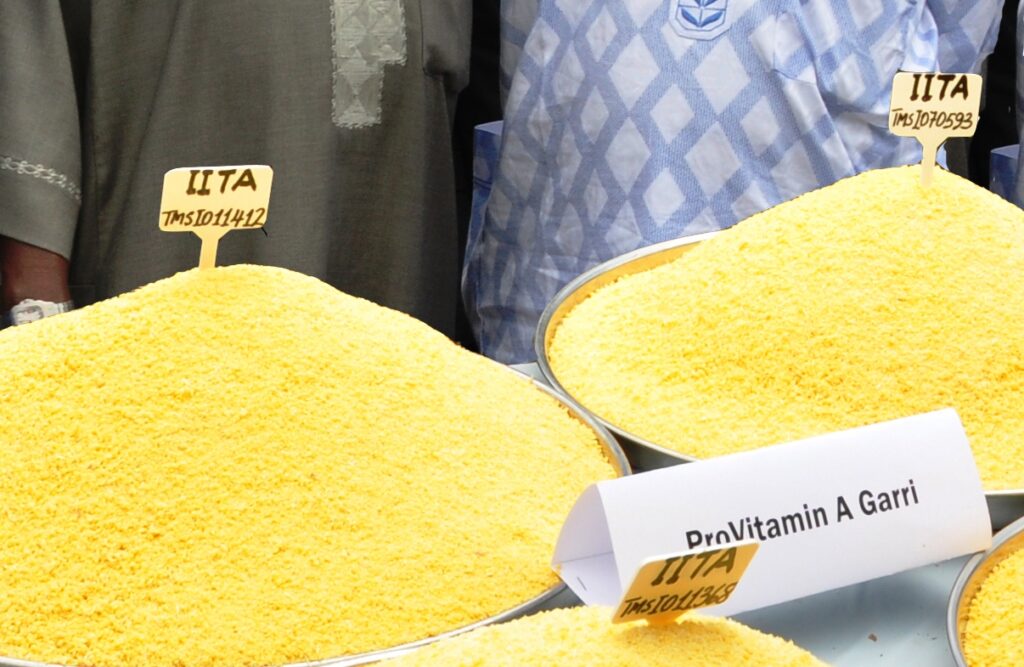New research shows that the human body can absorb twice as much beta-carotene from vitamin A cassava than was previously assumed. This conventionally-bred cassava has higher amounts of beta-carotene, a naturally occurring compound that the body converts into vitamin A. The cassava has been specially developed to combat vitamin A deficiency in Africa.
The study, published in the British Journal of Nutrition, was received with optimism by those working on food-based interventions to improve nutrition. Dr. Erick Boy, Nutrition Manager at HarvestPlus, says, “Until now we believed that only about eight percent of beta-carotene from cassava could be absorbed by the body. This study shows that it is not eight but 17 percent that is absorbed and then transformed by the body into vitamin A.”
If vitamin A deficient populations that eat cassava regularly switched to this new variety, their vitamin A status should improve measurably. Dr. Boy explains that these figures of higher vitamin A absorption were obtained in trials with healthy women as subjects. He says, “People who are deficient and malnourished transform and absorb vitamin A faster than those who are not vitamin A deficient. This means that biofortified cassava could be exceedingly effective in reducing vitamin A deficiency in people.”
Vitamin A deficiency is widely prevalent in sub-Saharan Africa. In Nigeria, where cassava is a staple food crop, about 20 percent of pregnant women and 30 percent of children under the age of five suffer from vitamin A deficiency. The deficiency is known to impair vision and lower immunity, leading to blindness and even death. HarvestPlus and the International Institute of Tropical Agriculture (IITA), along with local partners, are disseminating vitamin A cassava to combat vitamin A deficiency in Nigeria. The program has been met with a very positive response from local farmers.
Thousands of farmers across Nigeria are already growing vitamin A-rich cassava, and it is estimated that more than 150,000 farmers will be cultivating this crop by 2014. “Demand for these varieties has picked up, and in fact it will take some time before we have enough quantities of planting materials to give out,” said Paul Ilona, the HarvestPlus Manager for Nigeria.
The Ministry of Agriculture in Nigeria acknowledges that biofortification could be an inexpensive and sustainable strategy to reduce vitamin A deficiency in the country. The Government of Nigeria has an “Agricultural Transformation Agenda” that will support dissemination of vitamin A cassava to millions of farmers in a targeted manner over the next several years.
The new findings are aligned with previous studies that have confirmed higher-than-assumed bioavailability of beta-carotene from maize. Such studies raise the profile of biofortification efforts by showing that is possible to deliver higher levels of nutrients through staple crops.
Journal Article
Biofortified cassava increases β-carotene and vitamin A concentrations in the TAG-rich plasma layer of American women. British Journal of Nutrition.
